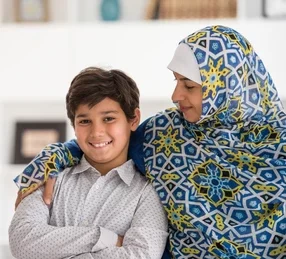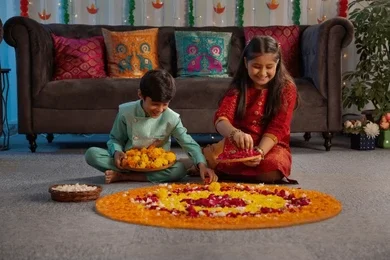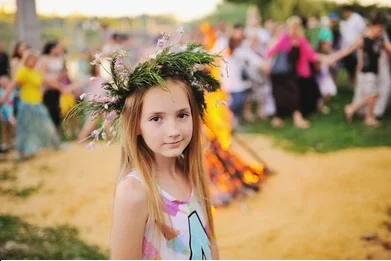Being from a faith background is not an issue in fostering. What matters most is your ability to provide a stable and caring home for a child or young person in a genuinely supportive and non-judgmental way. We welcome enquiries from individuals of all faiths who are committed to fostering.
Children from a variety of backgrounds are referred to us to assist to find a suitable foster home for them, Religion is something we need all our foster carers to be aware of and respectful of. We do ask that foster carers be open to caring for children from a different faith group, if a suitable match in other ways.
This can also mean knowing how much of your own religion to share with your foster children or navigating differences in religious beliefs in the home. We want you and your foster children to feel comfortable practising your faith at home, and here are a few things to consider:
Fostering children from different faiths
 When caring for a child from a different religious background, it’s important to:
When caring for a child from a different religious background, it’s important to:
- Learn about their faith by speaking with social workers, parents, or members of the local community.
- Understand any dietary restrictions or religious practices that are important to them.
- Help them maintain their connection with their religious community if they wish.
- Talk directly with the child, if they are old enough, about how they’d like to observe their faith.
Practising your religion as a foster carer
If your foster child has a different faith or no faith at all, you can:
- Share your beliefs in a respectful way, without imposing them.
- Answer their questions about your faith openly and honestly.
- Ensure they feel safe and supported, whether they participate in your religious activities or not.
Navigating Religious Holidays
- Mark the child’s religious holidays on your calendar and offer to celebrate them together if the child is interested.
- Invite your foster child to join in your celebrations, but always keep it optional.
- Be flexible and respectful of their preferences when it comes to participating in religious or cultural activities.
 Respect and Flexibility
Respect and Flexibility
You may need to adjust how you practice your religion while fostering. Some children may prefer not to discuss their faith, or they may not want to join you at your place of worship. It’s important to respect those wishes and ensure a trusted adult is available to support the child during these times if needed.
We take care to match foster carers and children to avoid serious conflicts of belief, but fostering still requires openness, tolerance, and a willingness to support children with different values or lifestyles. Even if a child’s beliefs or choices don’t align with your own, they still need your care and support without judgment.
Just as you have the right to practice your religion in your home, your foster child has the right to practice theirs – or to opt out of religious practice altogether. The key is to be patient, respectful, and to always maintain open communication.
Key Points To Remember:
- Flexibility and openness are essential in fostering.
- Respect each child’s right to practice their religion – or not.
- Always seek guidance and support from your supervising social worker if you’re unsure about anything.
Many of our foster carers come from faith backgrounds and provide incredible support to children and young people who cannot live with their birth families. If you’re interested in learning more about fostering and how your values can support a child in need, we encourage you to get in touch.
To find out more about fostering, please get in contact
via www.ukfostering.org.uk or 0345 222 0518 (Local Rate)
by Lynsey Dobbs, Senior Recruitment Officer

